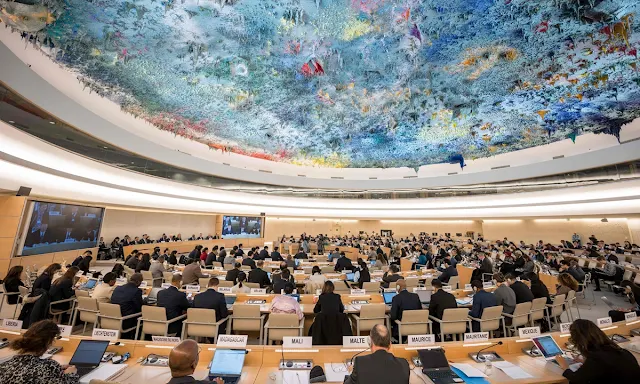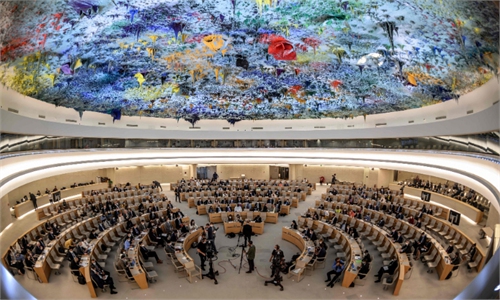IN Rio de Janeiro this week, something quietly historic unfolded. As the city welcomed leaders for the BRICS Summit, a fresh voice entered the conversation – Malaysia, a newly engaged BRICS partner country and current Chair of Asean. It wasn’t just the setting that was momentous; the substance, too, defied expectations.
Moments after touching down, Prime Minister Datuk Seri Anwar Ibrahim was ushered on stage alongside President Luiz Inácio Lula da Silva to open the BRICS Business Forum. What followed was not the usual speech-reading routine of international summits. Speaking with conviction, Anwar eschewed prepared remarks in favour of an unadorned, impassioned message that electrified the room and drew thunderous, sustained applause.
He delivered an address that was personal and relatable, lucid and uplifting, thanks not just to his oratorical skills but his political astuteness as well. His words, sharp and confident, resonated deeply with the hundreds in attendance in the packed hall.
This was not just Malaysia’s debut on the BRICS stage; it was an overture with a statement of intent on what’s in the offing going forward. At the core of Anwar’s speech was a simple truth – the developing world can no longer be seen as peripheral players in a system built elsewhere. We are rising powers in our own right, armed with moral capital, technological capacity and economic ambition.
This was a forceful expression of global reform. Anwar did not merely speak for Malaysia and Asean. He also articulated for the Global South its pursuit of a more equitable, responsive and plural future.
There was particular praise for Lula, whose principled leadership has steered BRICS beyond
rhetoric into something more consequential – a coalition with real potential to influence global structures. Today’s BRICS, Anwar noted, is not just a forum of statesmen; it includes the voices of the private sector, youth, women and civil society. That gives it a level of resilience, inclusivity and legitimacy that Bretton Woods institutions could not, being weighed down by their hierarchical and opaque structures.
His message marked clarity of purpose with the fine underlying subtleties: Malaysia, and the Global South, too, want to engage all, defer to none, and recast the architecture of global cooperation frameworks from the prism of developing nations. As Chair of Asean, Malaysia brings a regional mandate grounded in multilateralism, economic openness and collective agency.
Anwar addressed Asean’s drive to strengthen intra-regional trade and investment, deepen financial integration, and promote local currencies for cross-border transactions
towards a more stable, diversified system that’s less dollar-dependent. Building on this vision, the BRICS private sector could push innovative frameworks in finance via green
nd sukuk, among others, as levers for systemic transformation.
In his interventions at the Leaders’ Summit, Anwar made a strong case for closer BRICSASEAN ties. Both reflect the ambitions of the Global South, not to disrupt global order but to rebalance it. As economic bifurcation deepens and supply chains collapse, this dialogue helps to rebuild connectivity, fortify inter-regional trade and investment, and enhance collaboration on sectors that matter.
Anwar called for reform of the major postwar institutions, such as the United Nations, IMF, World Bank and WTO, in order to reflect the 21st-century world. The existing multilateral architecture is fraying not for lack of ideals but of responsiveness and the failure to evolve.
On the notion that Malaysia’s partnership with BRICS is demonstrative of a geoeconomic deflection from the West, particularly the United States, Anwar has made it unequivocally clear that the US remains Malaysia’s top source of foreign direct investment. In terms of trade, the US continues to be Malaysia’s third-largest trading partner, a position it has consistently held since 2015, with total bilateral trade exceeding Rm320bil in 2024. Thus, any suggestion of a shift is groundless.
That said, BRICS represents not a counterweight but a counterproposal deeply rooted in inclusion, equity, and shared sovereignty. It embodies a vision of balanced multilateralism that is networked, adaptive, and genuinely plural, offering an alternative framework better attuned to the complexities of a multipolar world.
What we saw in Rio was not a symbolic appearance – it was Malaysia stepping into a new role as bridge-builder, regional convenor, and vocal proponent of a more equitable global economy. And BRICS 2025 could well be a turning point.
The path forward is clear – not a retreat from the multilateral order but its reform; not a rejection of global engagement but its redistribution; not a rivalry of blocs but a realignment of priorities. In Rio, Malaysia asserted a new kind of agency – confident, constructive and forward-looking. The legacy of this moment will be written in the institutions reformed, partnerships forged, and futures enabled.
- The Star Malaysia
- PROF DATUK MOHD FAIZ ABDULLAH Chairman Institute of Strategic and International Studies, Malaysia (Read the full article at www. thestar.com.my)
IN Rio de Janeiro this week, something quietly historic unfolded. As the city welcomed leaders for the BRICS Summit, a fresh voice entered the conversation – Malaysia, a newly engaged BRICS partner country and current Chair of Asean. It wasn’t just the setting that was momentous; the substance, too, defied expectations.
Moments after touching down, Prime Minister Datuk Seri Anwar Ibrahim was ushered on stage alongside President Luiz Inácio Lula da Silva to open the BRICS Business Forum. What followed was not the usual speech-reading routine of international summits. Speaking with conviction, Anwar eschewed prepared remarks in favour of an unadorned, impassioned message that electrified the room and drew thunderous, sustained applause.
He delivered an address that was personal and relatable, lucid and uplifting, thanks not just to his oratorical skills but his political astuteness as well. His words, sharp and confident, resonated deeply with the hundreds in attendance in the packed hall.
\
This was not just Malaysia’s debut on the BRICS stage; it was an overture with a statement of intent on what’s in the offing going forward. At the core of Anwar’s speech was a simple truth – the developing world can no longer be seen as peripheral players in a system built elsewhere. We are rising powers in our own right, armed with moral capital, technological capacity and economic ambition.
This was a forceful expression of global reform. Anwar did not merely speak for Malaysia and Asean. He also articulated for the Global South its pursuit of a more equitable, responsive and plural future.
There was particular praise for Lula, whose principled leadership has steered BRICS beyond
rhetoric into something more consequential – a coalition with real potential to influence global structures. Today’s BRICS, Anwar noted, is not just a forum of statesmen; it includes the voices of the private sector, youth, women and civil society. That gives it a level of resilience, inclusivity and legitimacy that Bretton Woods institutions could not, being weighed down by their hierarchical and opaque structures.
His message marked clarity of purpose with the fine underlying subtleties: Malaysia, and the Global South, too, want to engage all, defer to none, and recast the architecture of global cooperation frameworks from the prism of developing nations. As Chair of Asean, Malaysia brings a regional mandate grounded in multilateralism, economic openness and collective agency.
Anwar addressed Asean’s drive to strengthen intra-regional trade and investment, deepen financial integration, and promote local currencies for cross-border transactions
towards a more stable, diversified system that’s less dollar-dependent. Building on this vision, the BRICS private sector could push innovative frameworks in finance via green
nd sukuk, among others, as levers for systemic transformation.
In his interventions at the Leaders’ Summit, Anwar made a strong case for closer BRICSASEAN ties. Both reflect the ambitions of the Global South, not to disrupt global order but to rebalance it. As economic bifurcation deepens and supply chains collapse, this dialogue helps to rebuild connectivity, fortify inter-regional trade and investment, and enhance collaboration on sectors that matter.
Anwar called for reform of the major postwar institutions, such as the United Nations, IMF, World Bank and WTO, in order to reflect the 21st-century world. The existing multilateral architecture is fraying not for lack of ideals but of responsiveness and the failure to evolve.
On the notion that Malaysia’s partnership with BRICS is demonstrative of a geoeconomic deflection from the West, particularly the United States, Anwar has made it unequivocally clear that the US remains Malaysia’s top source of foreign direct investment. In terms of trade, the US continues to be Malaysia’s third-largest trading partner, a position it has consistently held since 2015, with total bilateral trade exceeding Rm320bil in 2024. Thus, any suggestion of a shift is groundless.
That said, BRICS represents not a counterweight but a counterproposal deeply rooted in inclusion, equity, and shared sovereignty. It embodies a vision of balanced multilateralism that is networked, adaptive, and genuinely plural, offering an alternative framework better attuned to the complexities of a multipolar world.
What we saw in Rio was not a symbolic appearance – it was Malaysia stepping into a new role as bridge-builder, regional convenor, and vocal proponent of a more equitable global economy. And BRICS 2025 could well be a turning point.
The path forward is clear – not a retreat from the multilateral order but its reform; not a rejection of global engagement but its redistribution; not a rivalry of blocs but a realignment of priorities. In Rio, Malaysia asserted a new kind of agency – confident, constructive and forward-looking. The legacy of this moment will be written in the institutions reformed, partnerships forged, and futures enabled.







